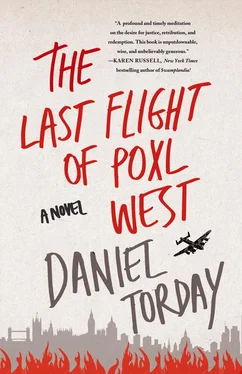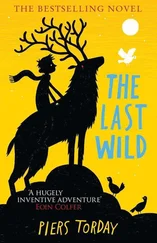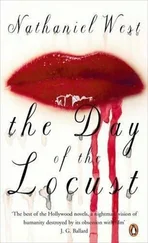14.
Here’s one thing I learned from reading with Mrs. Goldring before I took my leave of her daughter: When Hamlet asks Yorick how long a body lies in the ground before it rots, the first clown replies, “… eight year or nine year. A tanner will last you nine year.” When Hamlet asks, “Why he more than another?” the response comes this way: Why, sir, his hide is so tanned with his trade that it will keep out water a great while, and your water is a sore decayer of your whoreson dead body.
Was my father a difficult Jew to kill, to bury, to cremate? Had his skin so toughened that even once the life was snuffed from him, he wouldn’t cede his toehold on this craggy wall, his thick, tanned hide failing to succumb to the flames of the crematorium where he was kilned? Was his death different if he proved a tough Jew to burn?
After the war I read many of the books that were written during those times. I was later to gain mastery over the Shakespeare plays I had only begun to read with Mrs. Goldring in those days before I left for flight training, enough to teach those plays to interested students. Before that I read the histories of our times, the modernist literature produced during my youth. T. S. Eliot, as I say, had himself been a fire watcher during those days of the Blitz, and I read every word of his “Little Gidding,” which will always evoke those days for me.
After the war ended — long after I’d decided to drop bombs of my own on Germany, to fight a war thrust upon me that the side I was on was now winning — I learned that John Milton’s bones were vaporized on the last major Luftwaffe offensive of 1940, the night Clive Pillsbury and I met Glynnis Goldring. We never saw those bones, just as I never saw my parents’ remains or the obsequies for them. I didn’t even know what had become of Françoise. But that very same night Milton’s bones were done away with, before that final pub where Clive and I went with Glynnis, we had just passed a cemetery when I felt compelled to return to it. I wanted to make sure I’d seen what I thought I’d seen. I got down on one knee and picked it up. Shaken loose of its rest, and lying upon the grass, was a dirt-encrusted bone. A femur. A human femur.
If you wrong us, shall we not revenge?
The Germans were going to kill even our dead unless we were to do something about it.
15.
Those late days of the Blitz, my hunger to engage German soldiers gained full purchase over my mind. Glynnis and I would meet in the evenings and engage in a particular kind of intimacy — and even for the pleasure she brought me, even knowing I was in love with her, it was as if that love appeared to me through a newfound scrim. I longed to join up more than before.
“What is it, Poxl?” Glynnis would say as we lay in the half-light of her kerosene lamp.
“What is it?”
“Yes! Yes. You aren’t looking at me. You don’t look at me.”
I stared at the ceiling. Then I did look at her.
“It’s what I’ve said before,” I said. “It’s fine being a squaddie. But they need to put me to use. If I could just get in a plane, I could be of use.”
Glynnis lay back and she did not say aloud that my joining up, should it happen, would mean we would see each other less — and who knew the consequence beyond that. If ever there was a moment to tell her about Françoise, about my parents, this was it, and looking back now I can see it might have changed things, might at least have given her a sense of what was on my mind. I cannot say exactly why I did not tell her. I can only say that I didn’t. No matter what had changed in me, when I looked at her, in that moment, I couldn’t deny she was wonderful to look at. The way her plump cheeks pressed up against mine was almost enough to draw from me a confession of my letter from that Czech foreman. An explanation of my keeping from taking trips to the cave. A confession of nights out alone drinking. A divulgence of my time in Rotterdam that could have helped me see what I’d done in leaving.
Almost.
Regardless, when Glynnis asked me to go to the cave with her I now refused — for reasons that actually had nothing to do with her and everything to do with her mother, I did not make another trip east with her. I did not talk to her about my parents, and I would not. At Corbett’s Passage, my bunk was too hard. Back in Bermondsey the ceiling was too low, too close to us. The tiptoe of shadow touched and lifted up there.
“It’s nothing,” I said when she asked, over and over again, what was wrong, and I made her believe me.
16.
Every day I went to Southwark to attempt to enlist in the RAF.
Luftwaffe bomb on Rotterdam; I was gone.
Luftwaffe bomb in the East End; cousin Johana’s Briton had been done in.
What was there to do?
What there was for me to do was to fly a plane and take out the Luftwaffe myself.
I tried to impress upon the recruiters at RAF reception that even given the faults they perceived in my English, I had experience flying planes with my father at his aero club outside of Prague. I was twenty-one and desperate; I was a Jew looking to kill Nazis. I would be most effective killing Nazis in an aeroplane fitted with Browning guns and blockbuster bombs. Early on, I received only a strong endorsement of my work in the rescue squad (more pat on the head than pat on the back) and a nebulous invitation to try back sometime later.
Then Clive was inducted into the RAF. It was early fall, fully a year since the Blitz had begun. By this time he was seeing my cousin Niny only once every couple weeks. Although Clive wasn’t deemed fit to have joined early on in the war, we began to hear on the radio that Bomber Harris was ramping up a full-scale retaliation for the Blitz, that Bomber Command was building bombers and fighters faster than they could sign up young men to crash them. Clive arrived at Niny’s flat to say he was to enter pilot training the following day. He and Niny hadn’t consummated their relationship, hadn’t brought it past a flirtation, the early stages of courtship.
Now it was a courtship ended.
He didn’t even look at her as he left the flat — his obsessive personality was focused on his new path. This was how relationships might begin and end at that point in our lives: One kind of man might, in the moment before he was to leave for assignment, motor around the countryside with his woman, and though they’d only known each other for a matter of months, ask her to marry him.
Clive was very much not that kind of man.
Two months later, a change at 10 Downing in the laws pertaining to the employment of nonnaturalized citizens flying for the Royal Air Force made it so I was accepted as well. Should I be shot down over the Reich, I wouldn’t be long for the world. I wouldn’t be protected by any POW laws, a Czechoslovak Jew flying for the RAF.
“So, young chap, keeping this name Leopold Weisberg on your passport won’t do,” the inception officer told me. What name should I take instead? “Peter West is more appropriately a British name for a pilot in the RAF, don’t you guess?”
So though I would never in my life have anyone call me Peter, I took West as my new surname. If they had to call me Poxl West — if this would allow me to pilot Spitfires and engage in battle with Luftwaffe Junkers and Messerschmitts — then this is what they would call me.
With a new name and my knowledge of planes from my time with my father in an airstrip outside of Prague, I enlisted. I went down to Guy’s Hospital to tell Glynnis of the news. I found her at her bed checks.
“What is it, Poxl?” Glynnis said.
“I’ve finally gotten it,” I said.
She tapped at a saline drip attached to a man’s arm. On the windowsill behind that bed was a single hollyhock stalk, with three carmine blossoms pointing in three different directions. Hollyhocks do not give off an aroma. Glynnis did not hold my eyes with hers. The only smell in the room was the smell of iodine.
Читать дальше












